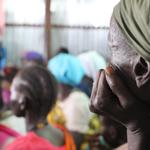Truth Commissions and Conflict Related Sexual Violence: Findings from Africa and Latin America
Since the millennium, a global normative and legal framework has developed to address gender-based crimes and conflict-related sexual violence (CRSV). Parallel to this development, we have seen a proliferation of countries employing transitional justice (TJ) mechanisms to address gross and systematic human rights abuses committed during armed conflict or authoritarian rule. Truth commissions (TCs) are one such tool. Overall, we know little about how CRSV has been negotiated into the mandate of truth commissions, how the focus on CRSV has been pursued, and what effect these strategies have had on reparative and preventive measures. This paper tries to fill some of that knowledge gap. Based on data collected on 38 truth commissions in Africa and Latin America operating over a period of half a century (1973-2024), we analyze when, how, and in which ways truth commissions across these two regions have dealt with/pursued CRSV. First, our research empirically confirms that TCs established after the millennium are more likely to address CRSV than those established earlier, signaling the importance of particularly the Women, Peace and Security Agenda. Second, we find that even though TCs often are reluctant to address CRSV in their mandates, many nevertheless deal with CRSV in their operations and findings. Third, only one third of the TCs included in our dataset have dealt with CRSV systematically throughout all four phases of their work, and only very few have made recommendations aimed to repair this harm or prevent CRSV from happening again. Finally, we find interesting regional differences: the TCs that have most systematically addressed CRSV are all in Africa.




